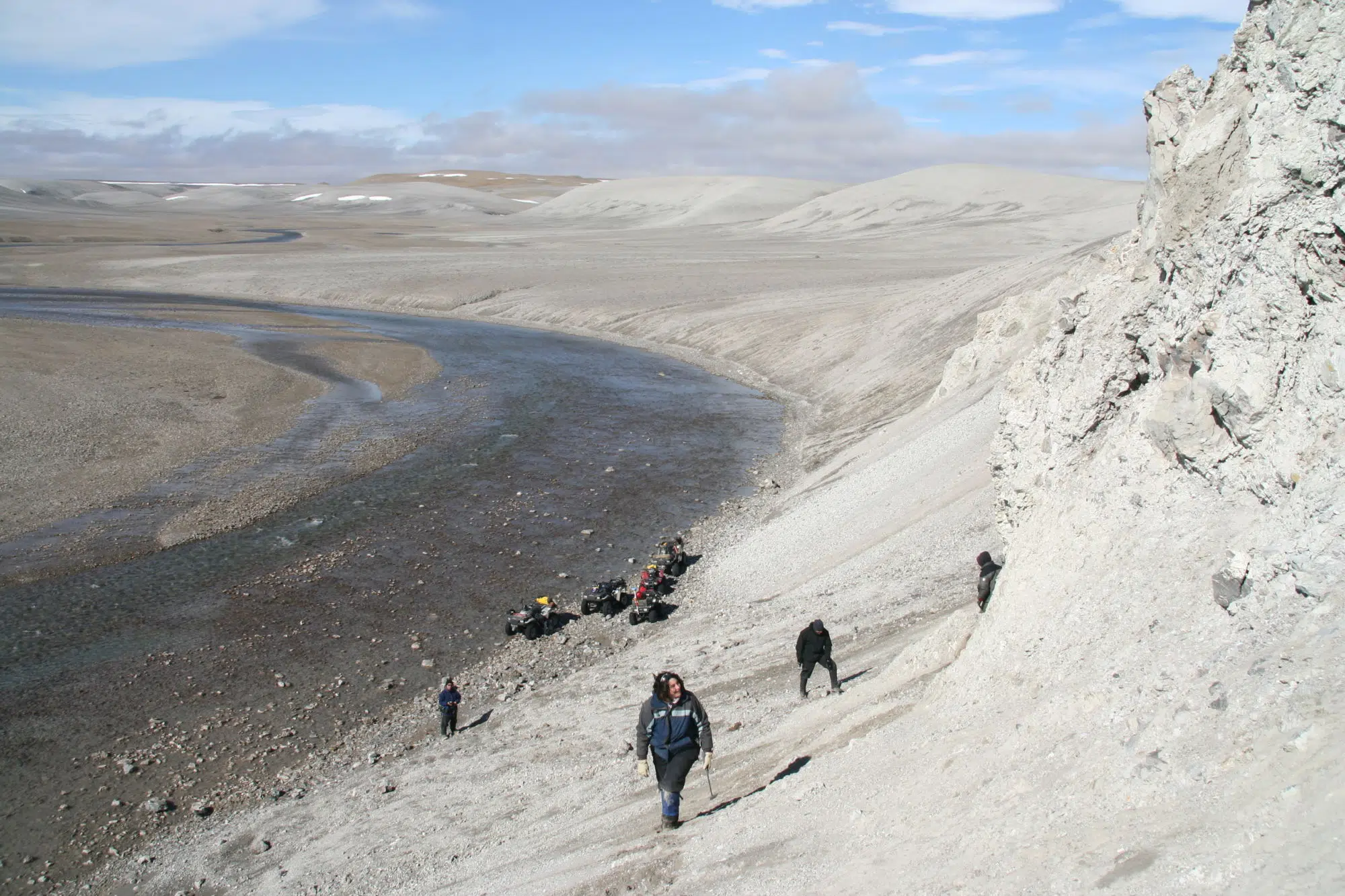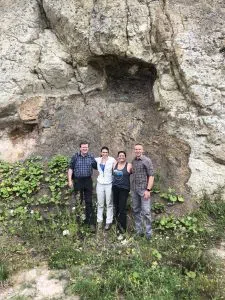
Team of Western planetary scientists are exploring melt rock at Haughton impact crater in Nunavut/ Western Media Relations
A new Western University study may show that meteorite impacts could have helped create life on Earth and other planets.
The new study published in Astrobiology poses that large space agencies like National Aeronautics and Space Administration (NASA) and European Space Agency (ESA) should look to impact craters, not only because of there invaluable post-impact geological records but also and more importantly, as prime locations for seeking new habitats for life.
Dr Gordon Osinski is the director of Western’s Institute for Earth and Space Exploration and is a co-author of the journal. His last 20 years of research has had this one question leading him. He explains the building blocks for life, in which all life on earth is carbon-based, and how meteorites bring carbon to the earth

The four authors of this new Astrobiology study, Charles Cockell, Haley Sapers, Alexandra Pontefract and Gordon Osinski pictured at the Ries impact crater in Germany in 2010/ Western Media Relations
“A lot of carbon came from the Earth as it was created. But we do think that a lot of those materials was delivered by comets that are very carbon-rich. There’s a particular class of meteorites called carbonaceous contracts that are again, very carbon-rich,” Osinski says. “It’s not just the carbon is a whole slew of other elements like complex molecules, where a lot of these meteorites contain amino acids.”
But, his research also contained going to Devon Island in Nunavut. The Haughton crater is about 23 kilometres across and was formed about 23 million years ago. The reason why they needed to go over there was to discover hydrothermal systems, which is any hot rock interacting with water. He reflects why hydrothermal systems are one of the ways life is created on earth.
“You’ve got the temperatures there, so even on cold objects, you know, frozen like Mars, you can still create hydrothermal systems and have these warm environments by these hot rocks,” Osinski said. “The other key ingredient for life is water, plus the energy source that is provided, you’ve got all these the nutrients and the building blocks for life.”
Dr Gordon Osinski reflects back on the international team with him on Devon Island
However, Osinski figures that we may never know the answer to the question, but has hope for another planet.
“We originated on Earth at least 3.8 billion years ago. But we’ve lost 99.999 per cent of the rock record from that time, because of Earth’s act of geology, plate tectonics, and volcanism. So it would be incredibly fortuitous”, Osinski stated. “In the short term, I think it’s Mars we might know. We know from orbit, there’s a lot of clay minerals, and clay minerals are generated by hydrothermal systems. It maybe won’t be the one to answer but will definitely help us figure out potentially life’s origins.”











Comments